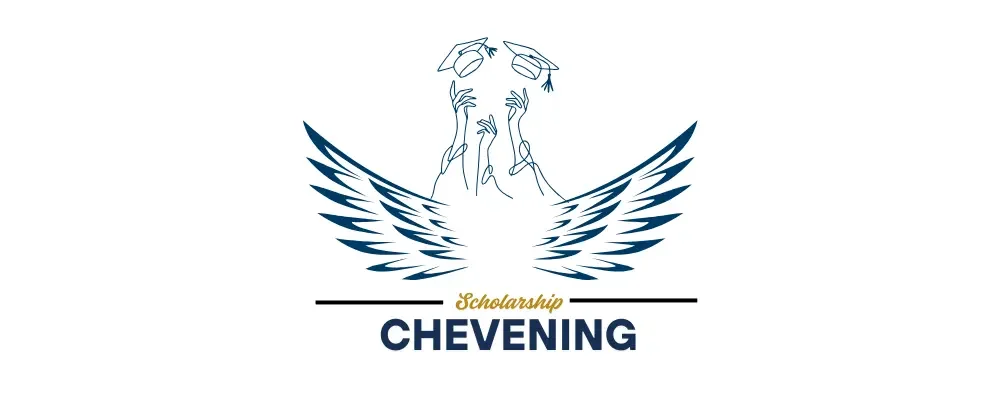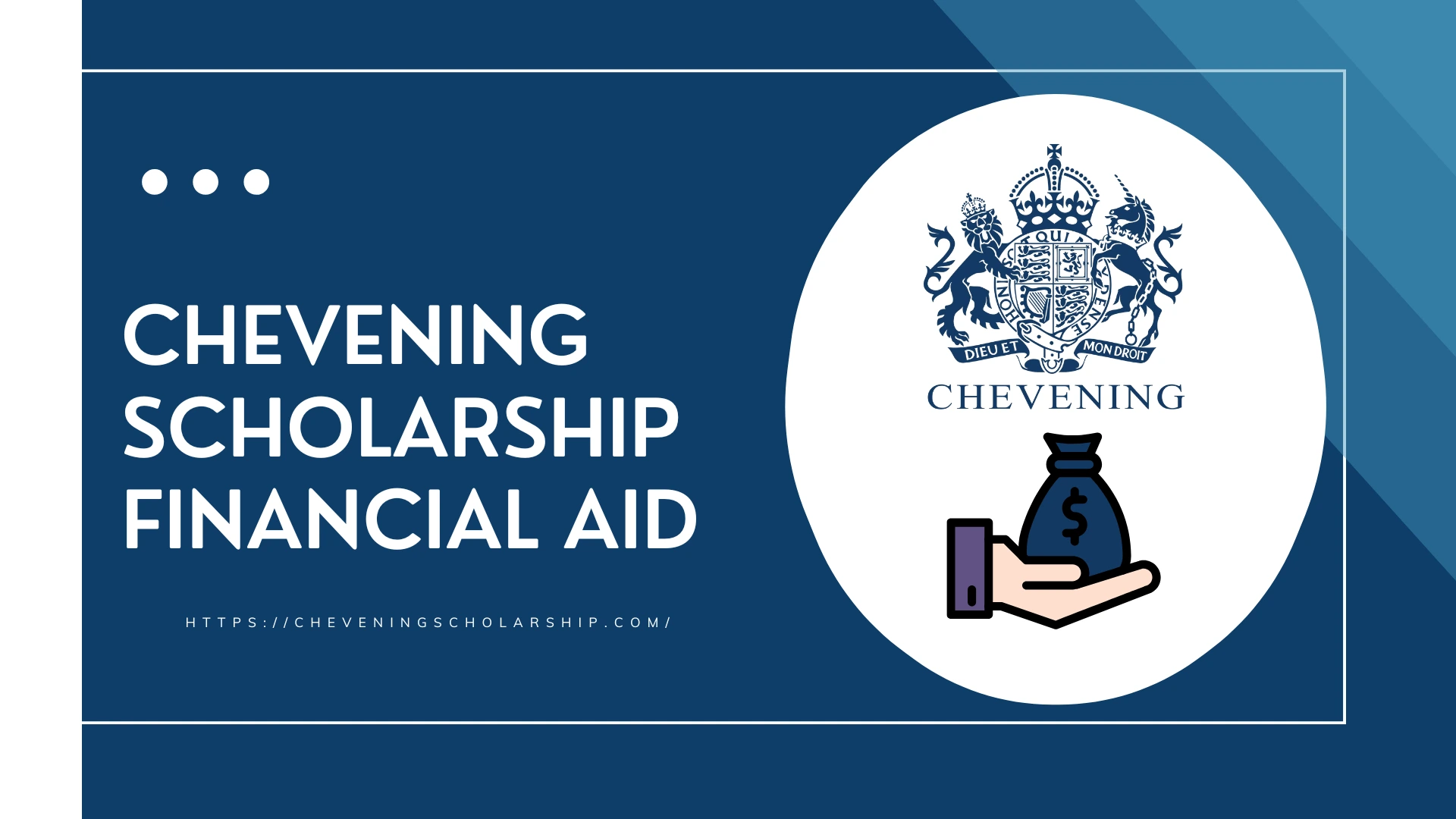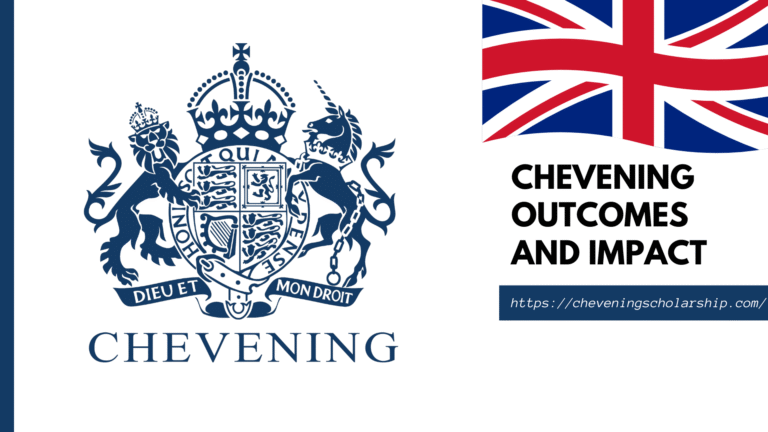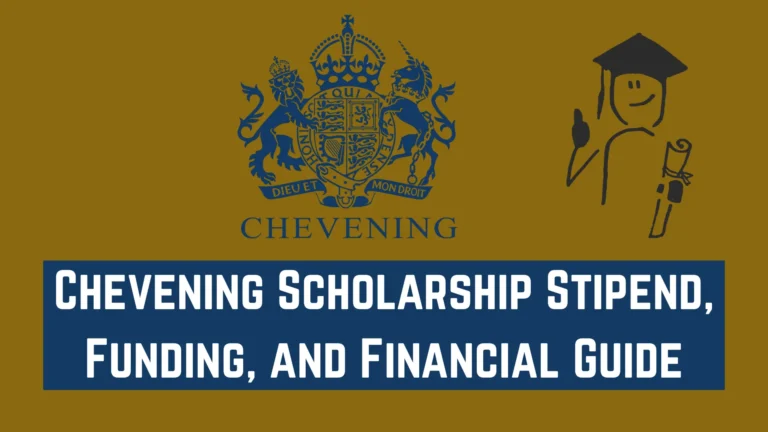Chevening Scholarship Financial Aid: Your Complete Money Guide
Let’s talk money. Not in that awkward, dancing-around-the-topic way, but straight up. Because here’s what nobody tells you about winning a Chevening scholarship: understanding the Chevening scholarship financial aid system can be the difference between thriving in the UK and constantly checking your bank balance with mounting anxiety.
I’ve watched brilliant scholars arrive in London, scholarship letter in hand, only to realize they have no clue when that first payment hits or how to stretch a monthly stipend across one of the world’s priciest cities. Some figured it out. Others? Well, let’s just say instant noodles featured heavily in their diet for the first few months.
You deserve better than that. You’ve worked hard to earn this scholarship—now let’s make sure you know exactly how the Chevening scholarship financial support works, when every penny arrives, and how to make it all work in your favor.
Consider this your financial survival guide. No corporate speak. No vague promises. Just real talk about real money.
What Exactly Is Chevening Scholarship Financial Aid?
Right, let’s start with the basics. When people say “Chevening is fully funded,” they’re not exaggerating. But “fully funded” means different things to different programs, so let me break down what Chevening scholarship financial support actually includes.
The Complete Financial Package
Think of Chevening financial aid as a comprehensive ecosystem designed to cover every major expense you’ll face during your UK master’s program. Here’s the full picture:
Core Financial Components:
| Financial Element | Purpose | Typical Amount | When Paid |
|---|---|---|---|
| Tuition Fees | Full program cost | £10,000 – £38,000 | Direct to university |
| Monthly Stipend | Living expenses | £1,236 – £1,516 | Monthly via bank transfer |
| Arrival Allowance | Initial settling costs | £1,331 | Shortly after arrival |
| Departure Allowance | Return home costs | £1,331 | Before departure |
| Travel Allowance | Flights to/from UK | Actual cost | Reimbursement |
| Visa Fee | Student visa cost | £490 | Reimbursement |
| Travel Grant | Chevening events | £335 – £488 | As needed |
| Thesis Grant | Research materials | Up to £495 | If applicable |
Total value? We’re talking £30,000 to £65,000 depending on your program and location. That’s not just financial aid—that’s life-changing support.
Understanding the Chevening Scholarship Stipend
The Chevening scholarship stipend is your monthly lifeline. It’s what pays for rent, food, transport, and everything else that keeps you functioning while you’re studying. Understanding how it works is crucial.
The Two-Tier System
Here’s where location matters big time:
London Stipend:
- Monthly amount: £1,516
- Annual total: ~£18,192
- Why more? London’s living costs are significantly higher
Non-London Stipend:
- Monthly amount: £1,236
- Annual total: ~£14,832
- Covers most UK cities comfortably
The difference? About £280 per month, or £3,360 over the year. That’s not pocket change—that’s acknowledging that a pint in London costs nearly twice what it does in Manchester.
What’s the Chevening Scholarship Stipend Amount 2025?
The amounts I’ve mentioned reflect the 2024-2025 academic year. Chevening scholarship stipend amount 2025 typically sees small annual adjustments based on inflation and cost-of-living changes. These are usually announced in summer when final offers go out.
Pro tip: Don’t budget using the exact figures until you receive your official offer letter. Amounts can vary slightly year to year.
The Chevening Scholarship Living Allowance: What It Actually Covers
Let’s get practical. The Chevening scholarship living allowance sounds generous on paper, but how does it translate to actual life in the UK?
Monthly Budget Reality Check
Living in London (£1,516 stipend):
| Expense Category | Typical Cost | Budget Notes |
|---|---|---|
| Rent (shared flat) | £700-900 | Zone 2-4, shared accommodation |
| Groceries | £250-300 | Cooking at home, occasional eating out |
| Transport (Oyster) | £150 | Tube and bus passes |
| Phone/Internet | £30-40 | Basic plans |
| Utilities | £50-70 | Often included in rent |
| Personal/Misc | £100-150 | Laundry, toiletries, entertainment |
| Total | £1,280-1,610 | Tight but manageable |
Living Outside London (£1,236 stipend):
| Expense Category | Typical Cost | Budget Notes |
|---|---|---|
| Rent (shared flat) | £400-600 | Varies by city |
| Groceries | £200-250 | Generally cheaper than London |
| Transport | £60-80 | Bus passes, occasional trains |
| Phone/Internet | £30 | Standard rates |
| Utilities | £40-60 | Sometimes included |
| Personal/Misc | £100 | Entertainment and essentials |
| Total | £830-1,120 | More comfortable buffer |
The math is tight in London, comfortable elsewhere. This is why Chevening scholarship financial planning matters from day one.
The Accommodation Dilemma
Here’s something the official materials don’t emphasize enough: your accommodation choice will make or break your budget. The Chevening scholarship accommodation allowance isn’t a separate payment—it comes from your monthly stipend.
Smart Housing Strategies:
University Halls:
- Pros: Convenient, bills included, instant community
- Cons: Often pricier, less flexibility
- Cost: £600-1,000/month in London
Private Shared Houses:
- Pros: Cheaper, more independent
- Cons: You handle bills, finding flatmates
- Cost: £500-800/month in London
Purpose-Built Student Accommodation:
- Pros: Modern, bills included, good facilities
- Cons: Expensive, can feel corporate
- Cost: £800-1,200/month in London
I always tell scholars: your first month’s rent deposit is the biggest financial hurdle. That’s where the arrival allowance becomes critical.
The Chevening Scholarship Arrival Allowance: Your Financial Lifeline
The Chevening scholarship arrival allowance is £1,331, and trust me, it disappears faster than you’d think. This one-time payment helps with initial costs, but you need a strategy.
What the Arrival Allowance Should Cover
Essential First Expenses:
- Accommodation Deposit: Usually 1-2 months’ rent (£600-1,800 in London)
- Initial Groceries: Stocking your kitchen (£100-150)
- Bedding/Basics: If not provided (£100-200)
- Oyster Card Deposit: If in London (£30-50)
- Phone SIM: UK number setup (£10-30)
- University Registration Fees: If applicable (£0-100)
Do the math. In London, your deposit alone might eat most of your arrival allowance. This is why I always recommend bringing at least £500-1,000 of personal funds as a buffer. The official guidance says you should have access to funds for your first month, and they’re not joking.
When Does the Arrival Allowance Actually Arrive?
Here’s the frustrating part: the Chevening scholarship first payment timeline isn’t always immediate. Typically:
- You arrive in UK: Day 1
- Open UK bank account: Days 3-7 (after getting proof of address)
- Register with university: Week 1
- Arrival allowance processed: 2-4 weeks after registration
That gap can be brutal. Some scholars have waited 3-4 weeks for their first payment while living on savings or borrowing from new friends.
Survival strategy: Bring enough personal funds to cover at least three weeks of expenses. Yes, I know that’s tough, but it’s reality.
Understanding the Chevening Scholarship Payment Schedule
The Chevening scholarship payment schedule follows a predictable pattern once it starts—but “once it starts” is the key phrase here.
How Payments Actually Work
Monthly Stipend Cycle:
- Paid on the last working day of each month
- Transferred directly to your UK bank account
- Covers expenses for the upcoming month
- Typically 12 payments across your program
Example Schedule for 2025 Entry:
- September 2025: Arrival allowance + First stipend
- October-August: Monthly stipends
- September 2026: Final stipend + Departure allowance
The Chevening Scholarship Payment Schedule 2025
The Chevening scholarship payment schedule 2025 will follow this general structure, though exact dates depend on when UK banks process transfers:
| Month | Payment Type | Typical Date |
|---|---|---|
| September 2025 | Arrival Allowance | Within 2-4 weeks of arrival |
| September 2025 | First Stipend | Last working day |
| October 2025 | Regular Stipend | Last working day |
| November 2025 | Regular Stipend | Last working day |
| … | Regular Stipend | Last working day |
| August 2026 | Final Stipend | Last working day |
| September 2026 | Departure Allowance | Before departure |
Pro tip: If the last working day falls on a weekend or holiday, the payment arrives the previous working day.
Setting Up Your Chevening Scholarship Stipend UK Account
You can’t receive Chevening scholarship stipend UK payments without a British bank account. Here’s how that process works:
Opening a UK Bank Account:
- Get University Documentation: You need a letter confirming your enrollment
- Choose Your Bank: Most scholars use Lloyds, HSBC, Barclays, or Santander
- Book an Appointment: Walk-ins rarely work anymore
- Bring Required Documents:
- Passport
- Visa
- University letter
- Proof of UK address (accommodation contract or university letter)
- Wait for Account Activation: 5-14 days
Common Bank Choices:
- Lloyds: Popular with international students, straightforward process
- HSBC: Good for international banking features
- Barclays: Reliable, many branches
- Monzo/Revolut: Digital banks, faster setup but sometimes less accepted by universities
Once your account is active, you’ll provide the details to your university’s Chevening coordinator, who’ll arrange the payments.
The Chevening Scholarship Travel Allowance Explained
The Chevening scholarship travel allowance covers your flights to and from the UK, but the process isn’t as straightforward as you might hope.
How Travel Allowance Works
Outbound Flight (To UK):
- You book and pay for your flight
- Keep all receipts and documentation
- Submit claim after arrival
- Reimbursement processed (can take several weeks)
Return Flight (From UK):
- Similar process—you book, they reimburse
- Usually claimed toward the end of your program
What’s Covered:
- Economy class flights
- Most direct route to/from UK
- Reasonable baggage allowances
What’s NOT Covered:
- Business or first class upgrades
- Indirect routes for personal travel
- Excessive baggage fees
- Travel insurance (you arrange separately)
The Travel Top-Up
There’s also a Chevening scholarship travel top-up for scholars traveling from particularly expensive or distant locations. This isn’t automatic—it’s assessed case by case.
If you’re coming from a remote region with limited flight options, you might qualify for additional support. The Chevening team will clarify this in your offer letter.
Additional Allowances and Grants
Beyond the core stipend, there are several other financial components worth understanding.
The Departure Allowance
The Chevening scholarship departure allowance mirrors the arrival payment—£1,331 paid as you’re preparing to leave the UK. This helps with:
- Final rent payments
- Shipping belongings home
- Excess baggage if needed
- Travel costs back to your home city
Typically paid in your final month, giving you time to organize your departure.
Thesis and Research Grants
If your program includes a dissertation requiring significant research, you might qualify for the thesis grant (up to £495). This covers:
- Research materials and books
- Data collection costs
- Specialized software
- Printing and binding
Not everyone gets this—it depends on your program requirements. Your university’s Chevening coordinator handles these requests.
The Travel Grant for Events
Throughout the year, Chevening hosts events—networking receptions, professional development workshops, the famous Farewell Ceremony. The Chevening scholarship travel grant (£335-488) helps with:
- Train tickets to London for events
- Accommodation if needed for overnight events
- Related travel expenses
This ensures scholars from Edinburgh, Manchester, or anywhere else can participate without financial stress.
Budgeting Tips: Making Your Money Work
Chevening scholarship financial planning separates scholars who thrive from those who struggle. Let me share strategies that actually work.
Month-by-Month Budget Strategy
Months 1-2: Survival Mode
- Minimize spending until stipend rhythm establishes
- Avoid big purchases
- Focus on essentials
- Use arrival allowance strategically
Months 3-6: Finding Your Rhythm
- Understand your actual spending patterns
- Identify where you can save
- Build a small emergency buffer (aim for £200-300)
- Start enjoying UK properly
Months 7-10: Comfortable Cruising
- Budget should be dialed in
- Save for end-of-year expenses
- Plan any UK travel during breaks
- Manage dissertation costs
Months 11-12: Exit Planning
- Prepare for departure
- Manage final rent/bills
- Save for any excess baggage
- Budget for farewell gatherings
The 50/30/20 Rule (Chevening Edition)
Adapt this classic budgeting framework:
50% Fixed Costs (£618-758 monthly)
- Rent
- Utilities
- Transport pass
- Phone
30% Variable Costs (£371-455 monthly)
- Food and groceries
- Study materials
- Personal care
- Entertainment
20% Buffer/Savings (£247-303 monthly)
- Emergency fund
- Unexpected expenses
- End-of-program costs
- Travel opportunities
Can you always stick to this perfectly? No. But having a framework helps.
Money-Saving Hacks for Chevening Scholars
Food:
- Shop at Aldi, Lidl, or Asda (much cheaper than Waitrose or M&S)
- Use Too Good To Go app for discounted restaurant food
- Cook in bulk and freeze portions
- Join university food co-ops if available
Transport:
- Get student railcard (saves 1/3 on train fares)
- Walk when possible—UK cities are walkable
- Use BlaBlaCar for intercity travel
- Bike instead of bus for short trips
Entertainment:
- Museums are free in UK (huge perk!)
- Student discounts everywhere—always ask
- Use Student Beans and UNiDAYS apps
- Free events through your university
Shopping:
- Charity shops for clothes and books
- Facebook Marketplace for furniture
- Student discount cards (NUS, TOTUM)
- Buy course books used or share with classmates
Common Payment Problems and Solutions
Let’s talk about Chevening scholarship stipend problems because they happen more often than anyone admits.
Issue #1: Delayed First Payment
The Problem: Your stipend doesn’t arrive when expected, and you’re running out of money.
Common Causes:
- Bank account details not submitted correctly
- University registration delays
- Administrative processing backlog
Solutions:
- Contact your university’s Chevening coordinator immediately
- Verify your bank details are in the system
- Request interim emergency funding if available
- Borrow from Chevening scholar community if needed
Issue #2: Incorrect Stipend Amount
The Problem: You receive less than expected in your monthly payment.
Common Causes:
- Tax deductions (rare but possible)
- Partial month calculation
- London vs. non-London rate confusion
Solutions:
- Check your offer letter for confirmed amounts
- Contact university finance team
- Review payment breakdown carefully
- Document everything for appeals
Issue #3: Missing Allowances
The Problem: Arrival or departure allowance doesn’t appear.
Common Causes:
- Not claimed properly
- Documentation missing
- Processing delays
Solutions:
- Submit claim forms promptly
- Keep copies of all receipts
- Follow up weekly if delayed
- Escalate to Chevening secretariat if university can’t resolve
The Chevening Scholarship Hardship Fund
Here’s something many scholars don’t know exists: the Chevening scholarship hardship fund. If you face genuine financial emergencies—medical costs, family emergencies, unexpected disasters—additional support may be available.
This isn’t automatic and requires justification, but don’t suffer in silence if you’re facing real hardship. Contact your university’s Chevening coordinator to discuss options.
Health Insurance and Medical Costs
While not technically Chevening scholarship financial aid, understanding healthcare is crucial to your budget.
NHS Access
As a Chevening scholar with a student visa over 6 months, you’ll pay the Immigration Health Surcharge (£470/year for students). This gives you:
- Full NHS access
- GP appointments (free)
- Hospital treatment (free)
- Prescriptions (£9.90 per item)
- Emergency care (free)
What’s NOT Covered:
- Dental care (expensive! Can be £50-200+)
- Eye tests and glasses (£25-80 for test, £50+ for glasses)
- Private medical care
- Some specialized treatments
Budget tip: Get dental check-ups and glasses before leaving home. UK dental costs can destroy your monthly budget.
Tax Implications: Are Stipends Taxable?
A common question: Chevening scholarship stipend taxes—do you pay them?
The Short Answer: Usually No
Scholarship stipends for living costs are generally not taxable in the UK if you’re here solely for full-time education. However:
You MAY Owe Tax If:
- You work part-time (income above £12,570 annual threshold)
- You have other UK income sources
- Your home country taxes foreign income
You PROBABLY DON’T Owe Tax On:
- Monthly stipend
- Arrival/departure allowances
- Travel reimbursements
- Thesis grants
Best Practice:
- Keep records of all Chevening payments
- Consult HMRC website for international students
- Get tax advice if you have other income
- Check your home country’s requirements for declaring foreign income
Most Chevening scholars never interact with UK tax authorities. But if you take part-time work (allowed up to 20 hours/week during term), you’ll get a National Insurance number and may pay some income tax if you exceed thresholds.
Managing Money Across Borders
One aspect of Chevening scholarship financial support that’s often overlooked: currency exchange and international transfers.
Getting Money From Home (If Needed)
Best Transfer Methods:
- Wise (formerly TransferWise): Low fees, good rates
- Western Union: Fast but higher fees
- Remitly: Good for certain corridors
- PayPal: Convenient but expensive rates
Worst Methods:
- Bank wire transfers: Terrible exchange rates plus fees
- Airport currency exchange: Highway robbery
- Credit card cash advances: Expensive and desperate
Sending Money Home
Some scholars need to support family back home. If this is you:
Budget Implications:
- Only possible if living outside London with strict budgeting
- Very difficult on London stipend
- Consider part-time work to supplement
Transfer Tips:
- Use Wise or similar for best rates
- Schedule regular transfers to avoid fees
- Consider cryptocurrency (but understand risks)
- Build transfer costs into your monthly budget
Financial Planning for Different Scenarios
Scenario 1: Single Scholar, No Dependents
Financial Profile:
- Easiest to manage
- Full stipend for personal use
- Most flexibility for saving or travel
Budget Strategy:
- Follow 50/30/20 rule
- Build £500-1,000 emergency fund
- Enjoy experiences without guilt
Scenario 2: Scholar with Visiting Family
Financial Profile:
- Challenging but manageable for short visits
- Additional accommodation costs
- Food and entertainment multiply
Budget Strategy:
- Save in months before visit
- Book budget accommodation in advance
- Cook at home more during visits
- Use free attractions
Scenario 3: Scholar with Dependents in UK
Financial Profile:
- Extremely challenging
- Stipend designed for individual only
- Dependents need separate visa and funds
Reality Check: Unless you have significant personal savings or partner works, bringing dependents on Chevening stipend alone is nearly impossible. The program explicitly states funding is for the scholar only.
If you must bring family:
- You’ll need £5,000-10,000 additional personal funds minimum
- Partner should seek work immediately
- Consider whether one year apart is more practical
Chevening Networking Opportunities: Your Golden Ticket to Global Connections
Your Financial Rights and Responsibilities
Understanding your Chevening scholarship financial rights protects you from exploitation and confusion.
What You’re Entitled To
Financial Guarantees:
- Timely payment of agreed stipend amounts
- Full tuition payment directly to university
- All agreed allowances and grants
- Clear communication about payment schedules
- Support if genuine payment issues arise
Your Responsibilities
Financial Obligations:
- Use funds appropriately for education and living
- Maintain financial records
- Report any additional income sources
- Complete program successfully
- Return home as agreed (two-year minimum)
Financial Compliance: The Chevening scholarship financial compliance rules aren’t onerous, but breaking them has consequences:
- Don’t use scholarship funds for business ventures
- Don’t transfer large amounts to others
- Don’t misrepresent your financial situation
- Don’t attempt to stay in UK beyond visa terms
Violations can result in scholarship termination and requirement to repay all funds received. Not worth the risk.
Planning for Post-Chevening Financial Life
Smart scholars think beyond their 12 months in the UK. Chevening scholarship financial planning includes your return home.
Building Your Post-Program Buffer
Months 9-12 Strategy:
- Save aggressively from monthly stipend
- Minimize entertainment spending
- Sell items you can’t take home
- Take advantage of departure allowance
Target Savings: Aim to return home with £1,000-2,000 in savings. This helps with:
- Job search period back home
- Reintegration costs
- Emergency buffer
- Professional development investments
Leveraging Your Chevening Experience Financially
Your scholarship has monetary value beyond the direct funding:
Career Capital:
- UK master’s degree (salary premium back home)
- Global network worth millions in opportunities
- Skills increasing your market value
- Credibility opening doors
Network Capital:
- Alumni connections lead to jobs
- Collaboration opportunities
- Mentorship from senior leaders
- Partnership possibilities
Many Chevening alumni report 30-50% salary increases within two years of returning home. Your financial ROI extends decades beyond the program.
Chevening Scholarship Countries: The Complete Global Guide for 2025
Frequently Asked Questions About Chevening Financial Aid
Q: Can I get additional financial aid if the stipend isn’t enough?
The stipend is fixed, but the hardship fund exists for genuine emergencies. Part-time work (up to 20 hours/week) is also allowed if you need supplementary income.
Q: What happens if my stipend payment is delayed?
Contact your university’s Chevening coordinator immediately. They can often arrange emergency advances or resolve payment issues quickly.
Q: Can I save money from my stipend?
Absolutely. Smart budgeting allows most scholars to save £100-300 monthly, especially outside London. This is encouraged for your post-program transition.
Q: Are family members eligible for any Chevening financial support?
No. Chevening funding covers only the scholar. Dependents require separate financial proof for their visas.
Q: Can I work full-time during breaks?
Your student visa allows full-time work during official university breaks (Christmas, Easter, summer). This can significantly boost your finances.
Q: What if I need expensive medical treatment?
NHS coverage is comprehensive, but for anything not covered, contact your university’s Chevening coordinator about the hardship fund.
Q: How do I access the thesis grant?
Your university’s Chevening coordinator handles this. Submit documentation of your research needs along with receipts.
Q: Can I invest my stipend savings?
Technically yes, though most scholars keep savings liquid for unexpected needs. Consult with a financial advisor regarding any investments.
The Chevening Alumni Network: Your Golden Ticket to a Global Community of Change-Makers
Your Financial Action Plan
Ready to master your Chevening scholarship financial support? Here’s your step-by-step checklist:
Before Arrival:
- [ ] Save £1,000-1,500 personal emergency fund
- [ ] Research accommodation costs in your university city
- [ ] Understand complete payment schedule
- [ ] Plan first month’s budget carefully
- [ ] Bring some British pounds in cash (£200-300)
First Week in UK:
- [ ] Open UK bank account ASAP
- [ ] Get proof of address from university
- [ ] Register with university completely
- [ ] Submit bank details for stipend
- [ ] Set up budgeting app or spreadsheet
First Month:
- [ ] Track every expense religiously
- [ ] Wait patiently for arrival allowance
- [ ] Submit travel reimbursement claim
- [ ] Join money-saving Facebook groups
- [ ] Connect with other Chevening scholars for tips
Ongoing:
- [ ] Review budget monthly
- [ ] Build emergency savings
- [ ] Take advantage of student discounts
- [ ] Plan major expenses in advance
- [ ] Network with alumni about financial tips
The Bottom Line: Making Chevening Work Financially
Here’s my honest take after watching hundreds of scholars navigate the Chevening scholarship financial aid system:
The Good: Chevening provides genuinely comprehensive financial support. With smart budgeting, you can live comfortably, focus on studies, travel a bit, and even save money.
The Challenging: The first 4-6 weeks can be financially stressful. Payment delays happen. London is expensive. You need personal funds as a buffer.
The Reality: Most scholars manage just fine. Some struggle initially but find their rhythm. Very few face genuine financial crisis if they plan properly and seek help when needed.
The Opportunity: This scholarship isn’t just about one year of funding—it’s about building a foundation for lifetime financial and professional growth.
Chevening Scholarship Deadlines 2025: Your Complete Timeline to Success (Don’t Miss a Single Date)
Your Financial Journey Starts Now
The Chevening scholarship financial support system is robust, transparent, and designed to let you focus on learning rather than money stress. But it requires understanding, planning, and smart management.
You’ve earned this scholarship. You’ve proven you’re capable of great things. Now prove you can manage the financial side too.
Start planning today. Build that budget. Understand those payment schedules. Connect with alumni about their money strategies.
Because when you return home in 12 months, you won’t just have a world-class degree and an incredible network. You’ll also have valuable financial planning skills that’ll serve you for decades.
Your Chevening journey is waiting. And now you know exactly how to make every penny work in your favor.
Have questions about Chevening financial aid? Drop them in the comments below. Current and former scholars regularly share advice—you’re joining a community that supports each other!
Ready to apply? Visit the official Chevening website for current stipend amounts and application details. Follow @CheveningFCDO for updates and scholar stories.
Disclaimer: Stipend amounts and payment schedules reflect 2024-2025 information and may vary slightly for future cohorts. Always verify current figures in your official offer letter. This guide provides general financial advice; consult with financial professionals for specific situations.








I want the scholarship
It’s a good opportunity